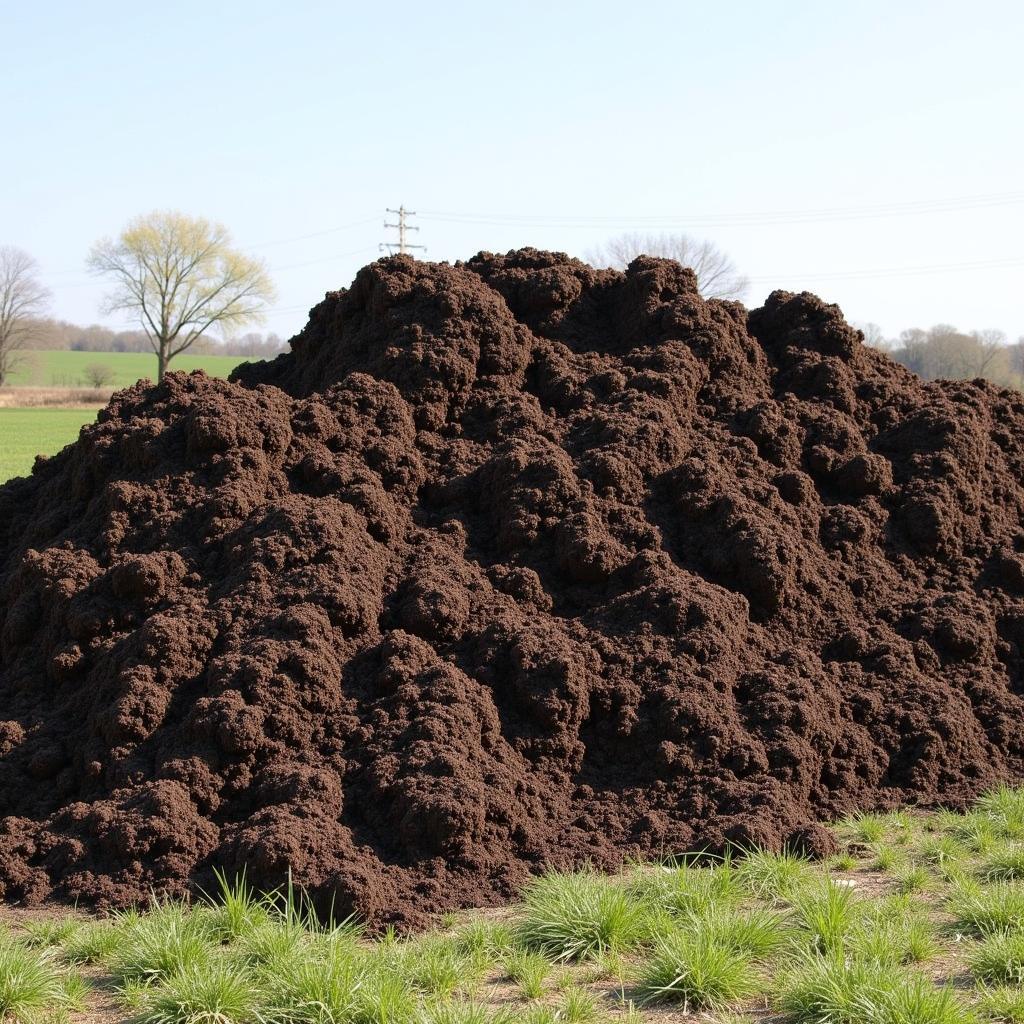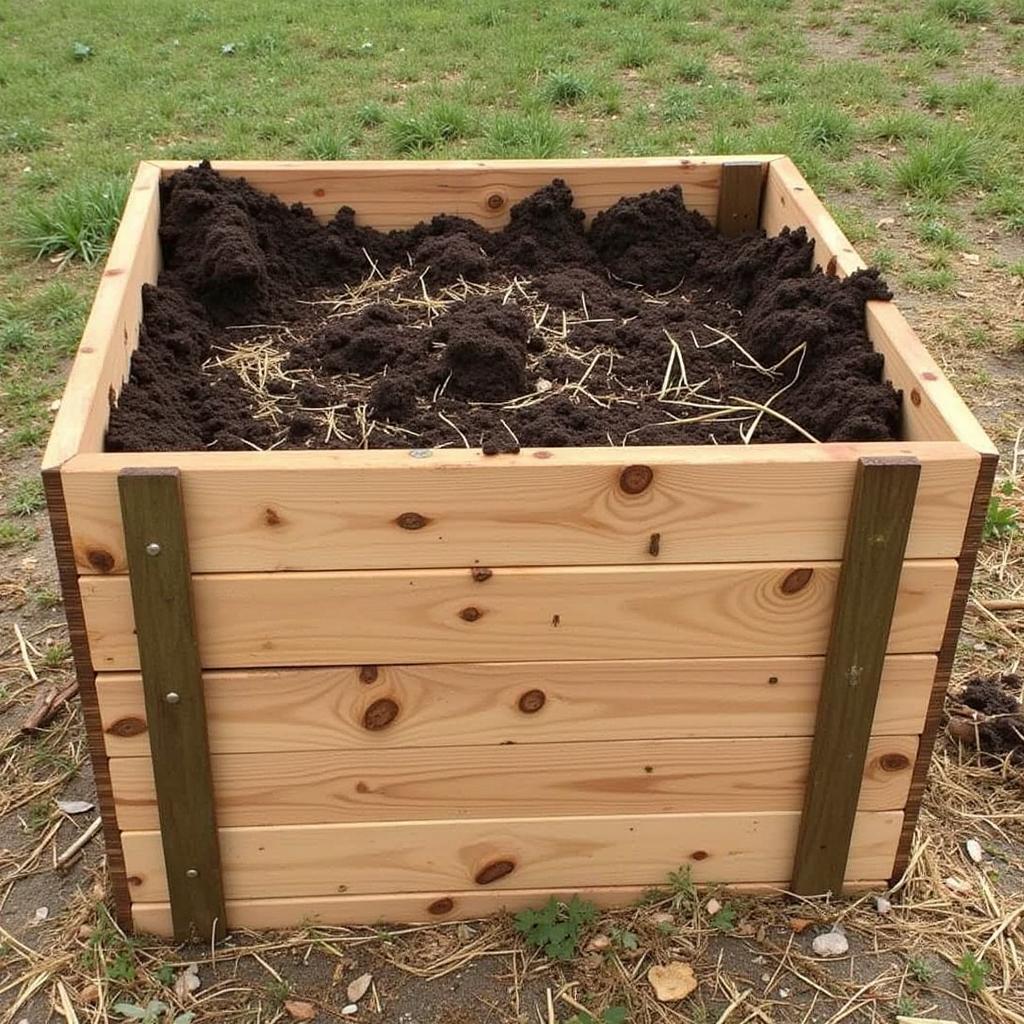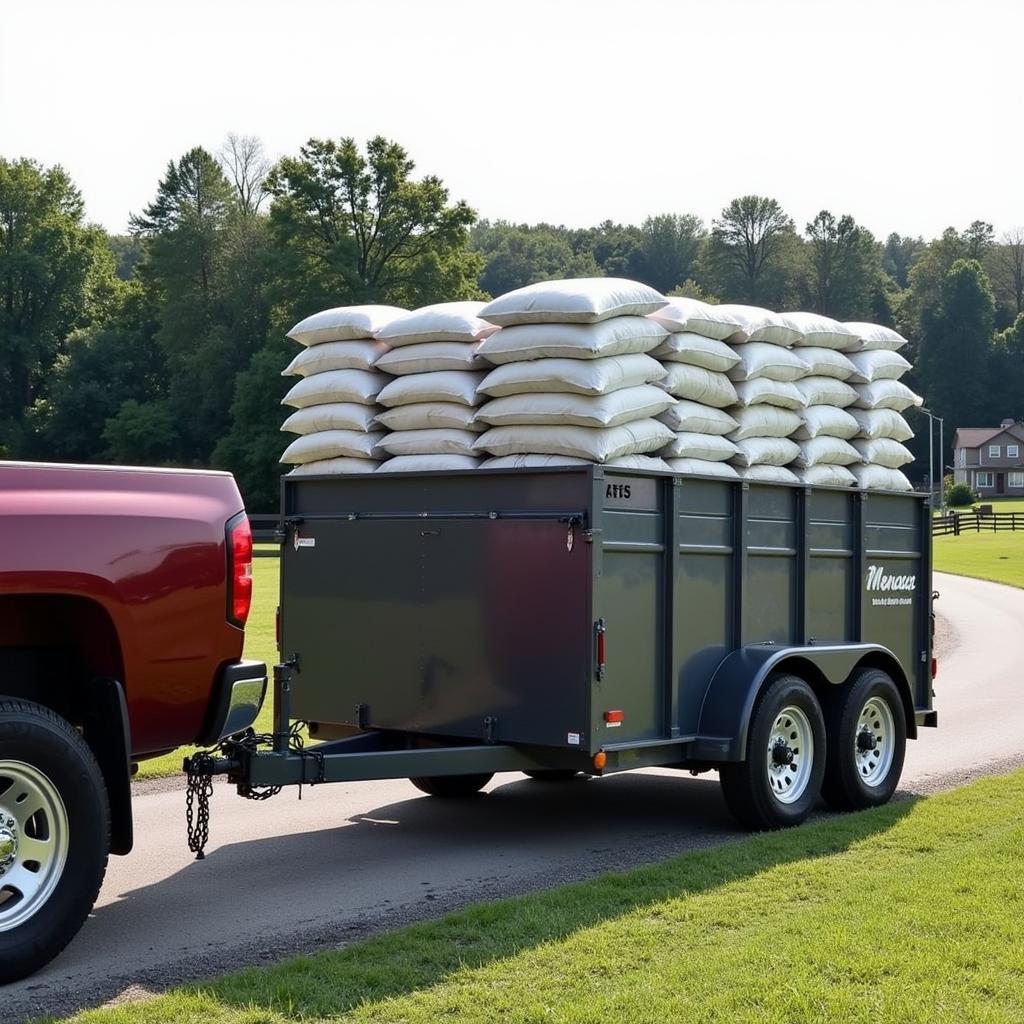Finding reliable and convenient horse manure disposal near you is crucial for maintaining a clean and healthy environment for both you and your horses. Whether you’re a seasoned equestrian or a first-time horse owner, dealing with manure is a reality that requires a practical and sustainable approach. This comprehensive guide explores the various horse manure disposal options available, helping you make the best choice for your needs and location.
 Large pile of horse manure in various stages of composting
Large pile of horse manure in various stages of composting
Understanding the Importance of Proper Horse Manure Disposal
Before delving into the specifics of disposal methods, it’s essential to understand why responsible manure management is non-negotiable for horse owners:
- Health and Hygiene: Horse manure attracts flies and pests that can transmit diseases to both horses and humans. Proper disposal minimizes these risks and maintains a healthy environment for all.
- Environmental Protection: Improperly managed manure can leach harmful pollutants into the ground water and nearby waterways. By choosing eco-friendly disposal options, you contribute to a healthier ecosystem.
- Aesthetics and Neighborliness: Let’s face it, a mountain of manure isn’t the most visually appealing sight, and the odor can be a nuisance to both you and your neighbors. Proper disposal keeps your property clean and odor-free.
Exploring Your Options: Horse Manure Disposal Methods
When it comes to horse manure disposal, you have several options, each with its pros and cons:
1. Composting: Turning Waste into Wealth
Composting is an excellent way to transform horse manure into a valuable resource for your garden or landscaping.
- How it Works: Composting involves mixing manure with carbon-rich materials like straw or wood chips, creating the ideal environment for decomposition. Regular turning and proper moisture levels speed up the process.
- Pros: Environmentally friendly, cost-effective, produces nutrient-rich fertilizer.
- Cons: Requires space, time, and effort to maintain the compost pile.
 A wooden compost bin filled with layers of horse manure and straw.
A wooden compost bin filled with layers of horse manure and straw.
2. Spreading: Sharing the Wealth with Your Land
If you have ample pasture or farmland, spreading aged manure can be a beneficial way to fertilize the soil.
- How it Works: Allow manure to age and decompose for several months before spreading it evenly over fields.
- Pros: Natural fertilizer, improves soil structure, cost-effective.
- Cons: Requires large acreage, potential for weed spread if manure isn’t fully composted, may not be suitable for all types of land.
3. Removal Services: Professional Help for Efficient Disposal
For horse owners seeking a hassle-free solution, professional manure removal services offer convenience and efficiency.
- How it Works: Companies specialize in collecting and disposing of horse manure on a regular schedule.
- Pros: Convenient, time-saving, ensures proper disposal.
- Cons: Can be costly depending on frequency and location.
4. Donation: Spreading the Love (and Manure)
Believe it or not, there’s a demand for horse manure beyond the stable!
- How it Works: Connect with local farmers, gardeners, or composting facilities who may be willing to accept your manure.
- Pros: Free, environmentally friendly, benefits others.
- Cons: Requires finding willing recipients, transportation logistics.
Finding “Horse Manure Disposal Near Me”: Where to Start
Now that you understand your options, let’s discuss how to find the best disposal solution in your area:
- Online Directories: Websites like Craigslist or local farm supply stores often have listings for manure removal services or individuals seeking free manure.
- Word of Mouth: Talk to fellow equestrians, trainers, or veterinarians in your area for recommendations.
- Local Regulations: Check with your municipality for any specific guidelines or restrictions regarding horse manure disposal in your community.
 A horse trailer filled with bags of manure, ready for transport.
A horse trailer filled with bags of manure, ready for transport.
Conclusion: Making Responsible Manure Management a Priority
Choosing the right horse manure disposal method is an important responsibility for any horse owner. By understanding your options and considering factors like convenience, budget, and environmental impact, you can make informed decisions that keep your stable clean, your horses healthy, and your property a joy to behold.